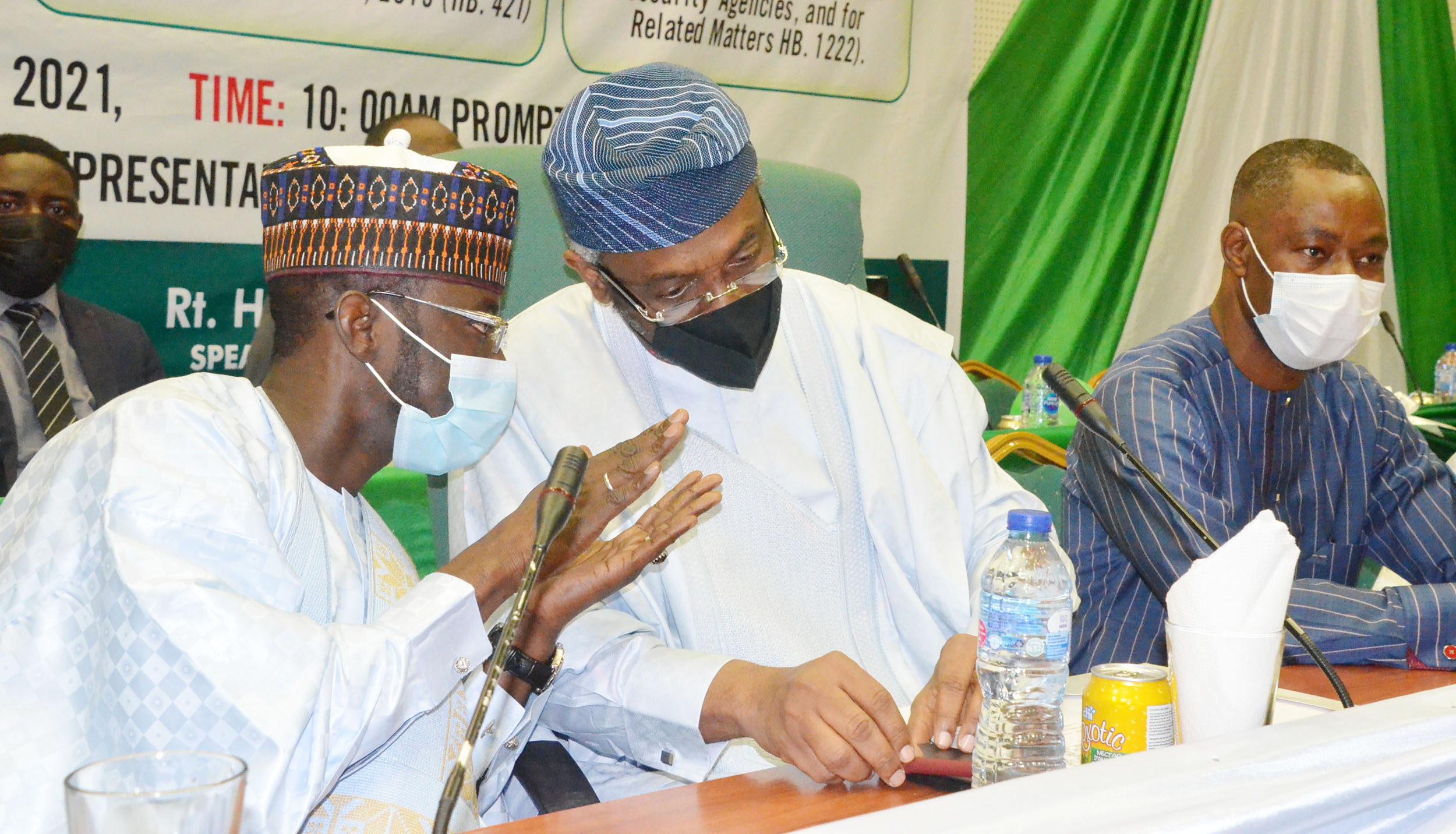Editorial
Reps’ Stance On Adulterated PMS Unacceptable

The House of Representatives, last Thursday, stunned Nigerians when it declared that nobody
would be sanctioned for the supply of adulterated Premium Motor Spirit, otherwise known as petrol, which caused a major crisis in Nigeria’s fuel chain and untold hardship for Nigerians.
At plenary, the House considered and adopted the reviewed report on the investigation by its Committee on Petroleum Resources (Downstream), which exonerated both the Nigeria National Petroleum Company (NNPC) Limited, former Nigerian National Petroleum Corporation, and the suppliers in the Direct Sale-Direct Purchase deal between the Federal Government and the importers.
Tempers had frayed in the House on February 10, 2022, over the importation of the methanol-contaminated petrol. Several members who spoke on the development called for severe sanctions against the Federal Government agencies and officials who failed to carry out due diligence before passing the product for onward distribution to marketers.
Consequently, the House had resolved to investigate the matter, insisting that those in the import and distribution chain, whose action or inaction led to the spread of the commodity, must be held accountable. The Majority Whip, Mohammed Monguno, had moved a motion of urgent public importance, titled “Need to Investigate the Release and Sale of Adulterated Premium Motor Spirit in Petrol Stations Across Nigeria”.
However, the committee had presented a report that failed to address the main issues for which it ordered the probe, causing the House to reject it. Several members of the House had, on March 23, 2022, criticised the earlier report by the committee as failing to hold any persons, groups, or companies responsible for the development or recommend sanctions.
Curiously, the recommendations in the second report were similar to those in the first version, yet, the House endorsed them. The committee recommended, among others, “that based on the Nigerian National Petroleum Company Limited exoneration, the four oil marketers/importers (Duke Oil; MRS Oil and Gas; Oando Oil; and Emadeb, Energy/Hyde/AY Maikifi/Britannia-U Consortium) did not commit any offence, therefore, not recommended for suspension”.
Reprehensible as the adoption of the recommendations may be, the House needs to explain to Nigerians why the second report was accepted over the first whereas both had similar contents. So, what has changed? We can only conclude that the lawmakers completely shied away from indicting the NNPC to avoid implicating President Muhammadu Buhari, who doubles as Petroleum Minister. This is yet another clear indication that the Nigerian government is unserious about the anti-graft war.
Nigerians should reject this obnoxious report. In keeping with its promise, the Federal Government should set up an independent panel of inquiry (if it has not done so) to examine the circumstances that characterised the importation of the contaminated petroleum products into the country by the NNPC and its contractors. The sack of the heads of the regulatory authorities must be part of measures to bring sanity to the chaos created by their failure to act appropriately.
Allowing NNPC management staff involved in the importation of the bad fuel to get away with the impudence would be a rape on Nigerians’ collective integrity and ignominy to the current administration. Regulation is a government function that cannot be outsourced. But in practically all the sectors of our national economy, consumers are unfairly made to bear the brunt of regulatory failures. No sector exemplifies this anomaly more than the oil and gas industry. There must be full accountability, sanctions, and compensation.
The NNPC has no hiding place; it is primarily to blame for this scandal. So, too is the Nigerian Midstream and Downstream Petroleum Regulatory Authority (NMDPRA), one of the two regulatory entities created from the defunct Department of Petroleum Resources (DPR). The regulator, like the NNPC, failed woefully to detect, isolate, and prevent the filthy consignment from entering the market.
Available evidence suggests that the Corporation and the marketers are culpable. As the NNPC is the sole importer of refined crude oil, it means adequate measures to protect the interest of Nigerians were not established when the fuel was purchased, shipped, and accepted at the ports. The current development has proved beyond doubt that the nation’s petroleum industry is full of shady deals where Nigerians are perpetually deprived of the benefits of their God-given natural resources.
Nigerians, including the Federal Government, should take the matter more seriously. Beyond the investigation ordered by Buhari, by now, the NNPC bosses should have been asked to step aside. The head of Duke Oil and others involved in the importation of the bad fuel should also be suspended to allow for unimpeded investigation. A criminal investigation should be opened. Anti-graft agencies need not wait for a parliamentary probe before launching discreet investigations.
For the dirty fuel to have escaped the regulators in the country of origin, the Standard Organisation of Nigeria (SON), NNPC Quality Control and Assessment Unit, speaks volumes about negligence, omission, and commission. Even if the culprits are sanctioned, which is what everyone expects, our feeble government institutions would ensure that the sanctions are not punitive enough to deter them from playing the same tricks on Nigerians in the future.
It was highly improper for the House of Representatives to acquit the NNPC and its cohorts of their indiscretions. The lawmakers should quickly review their stance and press for the complete sack and criminal prosecution of the importers and the NNPC staff implicated in the heinous act. That is the least Nigerians expect from them.
Editorial
Beginning A New Dawn At RSNC

Editorial
Sustaining OBALGA’s Ban On Street Trading

Editorial
AFCON ’25: Bravo, Super Eagles, But…


